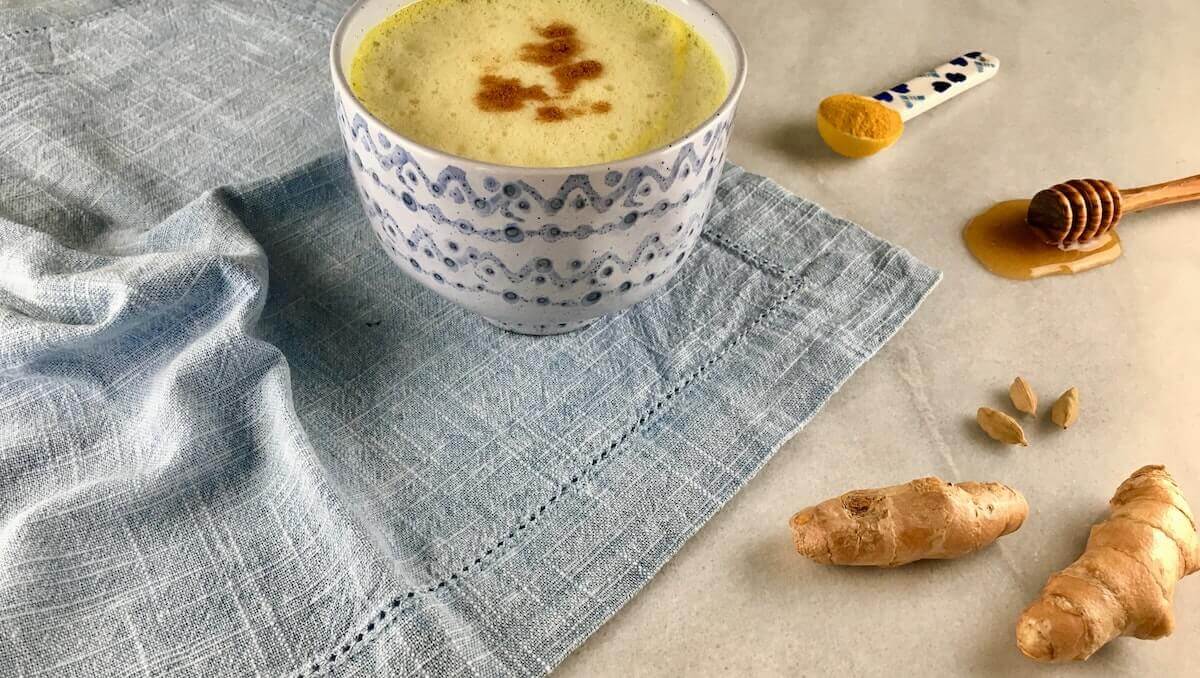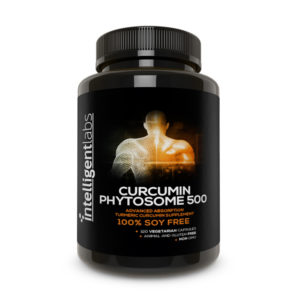Vitality
Meriva Curcumin: An Ultimate Guide To Turmeric’s Most Potent Compound
Raise your hand if you’re a fan of Indian cuisine! If you are, then you’re probably very well acquainted with one of the main spices used in Indian dishes – turmeric. It’s present in every Indian kitchen, ready to add flavor and color to an array of savory dishes. But alas, we’re not here to talk about food right now (though you can check our keto recipes here). Instead, we’re going to examine curcumin, one of the main components of turmeric. We’re also going to discuss how Meriva curcumin, a nano-delivery system, helps improve curcumin absorption rates in the body.
Table of Contents
What is curcumin and where does it come from?
Curcumin is a natural chemical that comes from turmeric (Curcuma longa), a flowering plant that’s abundant in tropical regions like India and Southeast Asia. To the untrained eye, turmeric may look quite similar to ginger. That’s because they come from the same family, Zingiberacaeae, so they’re actually related. Turmeric, however, is a more intense golden yellow color than ginger.
Turmeric is mainly harvested for its rhizomes (the root-like horizontal stems that grow underground). The rhizome is widely used in cooking and in treating various ailments. It can be used fresh, or ground into paste or powder form to extend its shelf life and use. That said, the turmeric leaf is no slouch when it comes to cooking. Add a leaf or two to your favorite dish (try it on rice!) and you’ll have food that smells like heaven itself!

When was curcumin discovered?
Turmeric’s use as a culinary spice was first documented in the Vedic age in India (c. 1500 – c. 500 BCE), but it wasn’t until 1815 when a “yellow coloring matter” was isolated from turmeric rhizomes by Harvard scientists Vogel and Pelletier (1). The duo named the substance ‘curcumin’ presumably from turmeric’s scientific name, Curcuma longa.
What’s the difference between curcumin and curcuminoids?
Curcumin is part of a family of active compounds called curcuminoids. In addition to curcumin, curcuminoids include demethoxycurcumin and bisdemethoxycurcumin.
A turmeric rhizome has approximately 2.5 to 6% curcuminoid content, of which 77% is curcumin, 17% is demethoxycurcumin, and 3% is bisdemethoxycurcumin (2).
Turmeric has more than 100 components in it (1), but you know what’s the active component that actually gives it that nice golden yellow color and its medicinal properties?
If you guessed curcumin, you’re right!
According to a study published in the Nutrition and Cancer Journal, curcumin averages a mere 3.14% by pure turmeric powder weight. This means that, on average, a 100g of turmeric powder will only contain 3.14g of curcumin (3).
It may not seem like there’s a significant amount of curcumin in a rhizome, however, it’s enough to get turmeric recognized in Ayurvedic medicine as a powerful antioxidant, anti-inflammatory, antibacterial and antiseptic (1).
Can’t I just eat turmeric and get my curcumin naturally?
Adding turmeric to your diet is certainly a natural way of getting curcumin (and all the other important nutrients found in this so-called “Indian saffron”). This is, after all, how our ancestors have been consuming curcumin for thousands of years!
However, as mentioned earlier, curcumin is only around 3% of powdered turmeric weight. This means you can eat a lot of turmeric and still only get a fraction of curcumin compared to what you’ll get in a supplement. If you want to take advantage of all the curcumin benefits, then supplements are the way to go.

What the best curcumin supplement out there?
Oh, there are lots to choose from. Amazon will give you hundreds, if not thousands, of curcumin supplements if you do a search there. But most of these supplements only use ‘ordinary’ or ‘unenhanced’ curcumin which have low curcuminoid content and are infamous for their low absorption rates (4).
A Meriva curcumin supplement, on the other hand, is standardized to contain 18-22% of total curcuminoids (5). That’s 2-3x the curcuminoid content of most ordinary curcumin supplements!
Let’s do a quick comparison between turmeric powder, a couple of ‘ordinary’ curcumin supplements, and Meriva curcumin. For ease of calculation of curcuminoid content, we will be using the following:
- Turmeric powder – rhizomes contain approximately 2.5% to 6% curcuminoids, but we will use 6% for this illustration
- Ordinary curcumin #1 – curcuminoid content is taken from their product label
- Ordinary curcumin #2 – curcuminoid content is taken from their product label
- Intelligent Labs Meriva curcumin – Meriva is standardized to contain 18% to 22% curcuminoids, we will use the average 20% for this illustration
| Product | Turmeric Blend Per Capsule | Curcuminoid Content |
| Turmeric powder | 100mg | 6mg (6%) |
| Ordinary curcumin #1 | 500mg | 47.5mg (9.5%) |
| Ordinary curcumin #2 | 665mg | 630mg (95%) |
| Intelligent Labs Meriva curcumin | 500mg | 100mg (20%) |
Which one do you think is the winner?
Well, turmeric powder and ordinary curcumin #1 are vastly inferior compared to ordinary curcumin #2 and Meriva curcumin, so they’re off the list.
Now, if you’re looking at the numbers alone, then you’re probably thinking ordinary curcumin #2 is the clear winner. However, there’s a BIG problem with ordinary curcumin supplements (you’ll know more about it in the next section). But here’s a hint – very little of that 630mg of curcuminoid content will actually make it into your bloodstream.
With Meriva curcumin, on the other hand, you’re getting 100mg of curcuminoids. Since Meriva is engineered for optimum absorption (it’s 2900% better absorbed than ordinary curcumin), you’re actually getting more of the good stuff (5)!
So, to answer the question, Meriva curcumin is the best curcumin supplement as it will help you get the most amount of curcumin in your body.

So, what is the big problem with ordinary curcumin supplements?
Curcumin may be the most potent ingredient in turmeric, but when extracted and taken orally as a dietary supplement, it’s a different story altogether. Ordinary or unenhanced curcumin’s big problem is its poor bioavailability or low absorption rates (4, 6).
When taken orally, the curcumin will travel from the mouth all the way to the gut and intestines. Now, this is where the problem lies – curcumin is a fat-soluble nutrient and the body, specifically the digestive system, is mainly a watery environment. Because curcumin does not dissolve in water, it ends up mostly excreted via urine and stool (7).
A small amount does get absorbed (especially if curcumin is taken with fatty food), however, it’s all rapidly broken down or metabolized by the body. This results in curcumin’s poor bioavailability (4).
One study gave escalating doses of curcumin to 24 healthy volunteers. They were given doses from 500mg to 12,000mg. The curcumin was so poorly absorbed that no trace of the substance was found in the volunteers’ serum when given doses up to 8,000mg! When they got to 10,000mg and 12,000mg, only then did low levels of curcumin present in 2 (out of 24) subjects (8).
You can buy a supplement with 95% curcuminoids, but if only a very low percentage is actually used by the body, then it doesn’t make much sense buying that product, right? Stop spending money on ordinary curcumin supplements since these won’t do you any good.

Does Meriva Curcumin really offer better bioavailability than ordinary curcumin supplements?
This is the million-dollar question. So, first of all, Meriva is a natural, food-grade delivery form of curcumin developed by Indena, a biotech company in Milan, Italy. Meriva uses patented phytosome technology to improve and optimize the body’s absorption of curcumin.
So, here’s how Meriva Curcumin works:
The curcuminoids are bound with phosphatidylcholine, a substance that makes up a major part of cell membranes in the body. Since phosphatidylcholine is naturally present in the body, it makes our body more receptive to absorbing it, which in turn leads to the curcumin being more easily absorbed as well.
If you find that explanation complicated, here’s an analogy:
Think of Meriva as a vehicle that delivers curcumin to the body. But instead of using metal (like real cars), it uses a substance that’s the same material as our cell membranes (phosphatidylcholine). The body recognizes the material and lets the car in by absorbing it. Once it’s absorbed, the curcuminoids inside the car are then released and put to good use.
This delivery system is so effective, in fact, that according to scientific studies, curcuminoids are 29 times better absorbed by the body as compared to ordinary, unenhanced curcumin (6). These numbers help eliminate the problem of curcumin’s poor bioavailability and helps Meriva curcumin users take advantage of the amazing benefits of curcumin!

Why take Meriva curcumin as a dietary supplement? What is it good for?
According to a ConsumerLab survey of 9,782 vitamin and supplement users, curcumin/turmeric is 2019’s 7th most popular dietary supplement (out of 169 different types of supplements).
34.8% or more than a third of respondents say they’ve purchased a curcumin/turmeric supplement in the past year. This means a significant number of people are aware of the health benefits of this powerful compound.
With that being said, here’s why you should also consider taking Meriva curcumin as a dietary supplement:
Benefit #1: It fights chronic inflammatory diseases such as osteoarthritis
In a study published in the Panminerva Medica journal (9), 1g of Meriva (or 200mg of curcumin) was given to 50 patients suffering from osteoarthritis. By the end of the 3 months, the patients were evaluated by their WOMAC scores. The WOMAC index is used to evaluate the conditions of patients suffering from hip and knee osteoarthritis.
These were the results:
*Global WOMAC score – decreased by 58% which means the patients experienced significant reduction in their osteoarthritis symptoms (less pain and stiffness).
*Walking distance on treadmill – on average, patients were able to increase their walking distance from 76m to 332m (up by 336%) which is excellent.
*C-reactive protein (CRP) levels – decreased from 168 +/- 18 to 11.3 +/-. 4.1 mg/L. CRP is an inflammation marker, so this means that Meriva curcumin was able to reduce inflammation in the body.
Other observations obtained during the study include a significant decrease in the following:
- use of painkillers,
- gastrointestinal complications,
- use of other drugs,
- management costs,
- distal edema,
- hospital admissions, and
- other costs associated with treating osteoarthritis.
The same group of researchers followed up with a second study to test the long-term safety and efficacy of Meriva. The study lasted 8 months and the number of patients doubled from 50 to 100. Their findings mirrored the results from the first study. The researchers concluded that Meriva is a safe and effective treatment option for the management of osteoarthritis, leading to an overall improvement in the patients’ quality of life (10).

Benefit #2: It acts as an analgesic and helps with pain relief
A 2016 systematic review published in the Pain Medicine journal reported that curcuminoids helped to significantly reduce pain in 606 patients across 8 randomized controlled trials. None of the patients experienced adverse effects and the curcuminoids were well tolerated (11).
Another study compared Meriva curcumin against two pain relievers – acetaminophen and nimesulide. Researchers found that 2g daily of Meriva (about 400mg of curcumin) brought pain relief to patients. This dose was comparable to 1g of acetaminophen, but lower than a nimesulide dose (100mg). Lower doses of Meriva weren’t as effective and took longer to take effect. The good thing is that Meriva curcumin is well tolerated by the stomach just like acetaminophen, which is something that can’t be said about nimesulide (12).
Benefit #3: Curcumin is a potent antioxidant
A meta-analysis conducted on 7 randomized controlled trials (RCT) showed that curcumin supplementation was responsible for an increase in antioxidant activity. Superoxide dismutase (SOD), catalase and glutathione levels in blood plasma increased significantly when supplementation ran for more than 6 weeks (13).
No significant antioxidant activity was detected when curcumin supplementation was done for less than 6 weeks. Because of this increase in antioxidant activity, there was a corresponding decrease in free radical activity via reduction of serum lipid peroxides (13).
A 2011 study compared the antioxidant effects of 2 doses of curcumin. The first group was given 500mg/day of curcumin, and the second group 6g/day of curcumin. After 7 days, the researchers found that the first group’s plasma antioxidant rose from 13% to 24% (significant increase), while the second group increased from 19% to 20% (not significant at all) (14).
The first group also experienced reduced cholesterol and triglyceride levels. Because of these findings, the researchers recommend curcumin supplementation be done by people who want to reduce cholesterol or triglyceride levels, and only at 500mg per day (14).

Benefit #4: It helps improve mood and brain function
A 2017 study done on 123 patients showed that the 2 groups given curcumin (250mg vs 500mg) for 12 weeks experienced a reduction in depression and anxiety symptoms. There were also no significant differences in the symptoms between the different doses of curcumin, so even the low dose (250mg) is enough to alleviate depressive symptoms (15).
As for brain function, a 2019 systematic review of 4 RCTs with a total of 139 participants found that curcumin supplementation led to a significant improvement in serum BDNF (brain-derived neurotrophic factor) levels. The dose varied from 200mg to 1,820mg per day and study duration lasted between 8 to 12 weeks (16). This is a promising study since low BDNF levels is associated with conditions like major depressive disorder, Alzheimer’s disease and dementia (17).
Benefit #5: Helps with obesity, diabetes, and heart disease
A 6-month study by Chuengsamarn et al. on 240 type 2 diabetics showed exciting results (18):
- Significant reduction in pulse wave velocity, which indicates lower risk of arteriosclerosis
- Better overall metabolic profile – reduced insulin resistance, lower triglycerides, visceral fat, total body fat, and waist circumference
- Increase in adiponectin levels and corresponding decrease in leptin levels, which reduces the risk of heart attack
Each patient was given 6 capsules daily, with each capsule containing 250mg of curcuminoids.

Benefit #6: Helps prevent and treat various forms of cancer
Studies done on mice show that curcumin can slow down the growth of cancer cells as well as prevent the growth of tumors (19). When used with other chemo drugs, curcumin has been shown to not only prevent cancer relapse, but it also works to reduce tumor mass and slow down cancer progression (20). A number of ongoing clinical trials on curcumin are examining the use of this substance in preventing and treating various forms of cancer (20).
How much turmeric or curcumin is safe to take each day?
According to the US Food and Drug Administration, curcumin is ‘generally recognized as safe’ (21). With regards to dosage, a dose-escalating study done by Lao et al. showed that curcumin is safe to take even at high doses of 12g/day. A third of the volunteers experienced minor toxicity, but the researchers said these did not appear to be related to the curcumin dosage (8).
Is Meriva curcumin safe to take long-term?
Yes, it’s safe to take long-term. We recommend taking up to 1-2g of Meriva daily to help manage various health conditions. The 8-month study done by Belcaro et al. on Meriva showed that this is a safe supplement with very low oral toxicity (10).
What are the side effects of taking curcumin supplements?
While curcumin is a relatively safe compound, some side effects may occur especially when taken in high doses. 7 out of 24 subjects in the Lao study (8) reportedly experienced headaches, rashes, yellow stool, and diarrhea. In another study, a few volunteers receiving 450mg to 3.6g daily for up to 4 months experienced nausea and diarrhea (22).

Who shouldn’t be taking curcumin?
People who are allergic to turmeric probably shouldn’t be taking curcumin supplements. A study published in a Dermatology journal reported that while curcumin has many valuable properties, it can cause contact dermatitis (23).
Also, if you are pregnant or breastfeeding, please consult with your primary care physician if supplementing with curcumin is okay and what the right dosage for you is.
When’s the best time of day to take turmeric?
You can take turmeric supplements any time of day, but it’s best taken with food to help improve absorption rates. The same thing goes with Meriva curcumin. The phosphatidylcholine that binds with the curcumin is best absorbed when taken with fatty food. We don’t advise taking turmeric on an empty stomach.
How much turmeric per day for pain?
It really depends on the kind of pain you’re experiencing. But 500mg per day of Meriva curcumin is a good start. If you’re not seeing results, then you can slowly increase the dosage up to 1g-2g daily.
For osteoarthritis pain, 1g daily dose of Meriva may work well for you. In the Belcaro study (10), 1g of Meriva daily for 8 months resulted in a 63% reduction in painkiller use, 59% reduction in pain and stiffness, 67% reduction in digestive problems, and 346% improvement in maximum walking distance.
Can curcumin cure arthritis such as gout?
Recent studies (2019) on mouse models show that curcumin can significantly reduce uric acid levels with minimum toxicities (24, 25). This is very promising, but ultimately, we will need to wait for clinical trials before we can definitely say that curcumin can cure gout.

Can turmeric cause diarrhea?
If you’re not used to eating turmeric, then you may experience a bout of diarrhea. Fortunately, when it comes to curcumin supplements, it’s relatively safe as attested to by multiple studies (8, 9, 10). Normally, curcumin side effects only occur when taken at higher doses.
Does turmeric thin the blood?
Yes, turmeric – specifically curcumin – is a natural anticoagulant or blood thinner (26). Turmeric helps lower the risk of blood clots, which in turns, reduces the probability of heart attacks and strokes.
Final words
Turmeric isn’t just some fabled wonder spice with a long list of health benefits. Modern science is actually backing up many of those health claims. Thanks to an efficient delivery system like Meriva, curcumin’s bioavailability is improved. Experience the amazing benefits of curcumin by adding our Intelligent Labs Meriva Curcumin Phytosome supplement to your daily healthcare routine.
References
(1) Prasad S, Aggarwal BB. Turmeric, the Golden Spice: From Traditional Medicine to Modern Medicine. In: Benzie IFF, Wachtel-Galor S, editors. Herbal Medicine: Biomolecular and Clinical Aspects. 2nd edition. Boca Raton (FL): CRC Press/Taylor & Francis; 2011. Chapter 13. Available from: https://www.ncbi.nlm.nih.gov/books/NBK92752/
(2) Lee W-H, Loo C-Y, Bebawy M, et al. Curcumin and its derivatives: their application in neuropharmacology and neuroscience in the 21st century. Current neuropharmacology. 2013;11(4):338-78.
(3) Tayyem, Reema F et al. “Curcumin content of turmeric and curry powders.” Nutrition and cancer vol. 55,2 (2006): 126-31. doi:10.1207/s15327914nc5502_2
(4) Anand, Preetha et al. “Bioavailability of curcumin: problems and promises.” Molecular pharmaceutics vol. 4,6 (2007): 807-18. doi:10.1021/mp700113r
(5) Belcaro, G et al. “Product-evaluation registry of Meriva®, a curcumin-phosphatidylcholine complex, for the complementary management of osteoarthritis.” Panminerva medica vol. 52,2 Suppl 1 (2010): 55-62.
(6) Cuomo, John et al. “Comparative absorption of a standardized curcuminoid mixture and its lecithin formulation.” Journal of natural products vol. 74,4 (2011): 664-9. doi:10.1021/np1007262
(7) Metzler, Manfred et al. “Curcumin uptake and metabolism.” BioFactors (Oxford, England) vol. 39,1 (2013): 14-20. doi:10.1002/biof.1042
(8) Lao, Christopher D et al. “Dose escalation of a curcuminoid formulation.” BMC complementary and alternative medicine vol. 6 10. 17 Mar. 2006, doi:10.1186/1472-6882-6-10
(9) Belcaro, G et al. “Product-evaluation registry of Meriva®, a curcumin-phosphatidylcholine complex, for the complementary management of osteoarthritis.” Panminerva medica vol. 52,2 Suppl 1 (2010): 55-62.
(10) Belcaro, Gianni et al. “Efficacy and safety of Meriva®, a curcumin-phosphatidylcholine complex, during extended administration in osteoarthritis patients.” Alternative medicine review : a journal of clinical therapeutic vol. 15,4 (2010): 337-44.
(11) Sahebkar, Amirhossein, and Yves Henrotin. “Analgesic Efficacy and Safety of Curcuminoids in Clinical Practice: A Systematic Review and Meta-Analysis of Randomized Controlled Trials.” Pain medicine (Malden, Mass.) vol. 17,6 (2016): 1192-202. doi:10.1093/pm/pnv024
(12) Di Pierro, Francesco et al. “Comparative evaluation of the pain-relieving properties of a lecithinized formulation of curcumin (Meriva(®)), nimesulide, and acetaminophen.” Journal of pain research vol. 6 (2013): 201-5. doi:10.2147/JPR.S42184
(13) Sahebkar A., Serbanc M.C., Ursoniuc S., Banach M. Effect of curcuminoids on oxidative stress: A systematic review and meta-analysis of randomized controlled trials. J. Funct. Foods. 2015;18:898–909. doi: 10.1016/j.jff.2015.01.005.
(14) Pungcharoenkul, Kanit, and Phensri Thongnopnua. “Effect of different curcuminoid supplement dosages on total in vivo antioxidant capacity and cholesterol levels of healthy human subjects.” Phytotherapy research : PTR vol. 25,11 (2011): 1721-6. doi:10.1002/ptr.3608
(15) Lopresti, Adrian L, and Peter D Drummond. “Efficacy of curcumin, and a saffron/curcumin combination for the treatment of major depression: A randomised, double-blind, placebo-controlled study.” Journal of affective disorders vol. 207 (2017): 188-196. doi:10.1016/j.jad.2016.09.047
(16) Sarraf, Payam et al. “Short-term curcumin supplementation enhances serum brain-derived neurotrophic factor in adult men and women: a systematic review and dose-response meta-analysis of randomized controlled trials.” Nutrition research (New York, N.Y.) vol. 69 (2019): 1-8. doi:10.1016/j.nutres.2019.05.001
(17) Ng, Ted Kheng Siang et al. “Decreased Serum Brain-Derived Neurotrophic Factor (BDNF) Levels in Patients with Alzheimer’s Disease (AD): A Systematic Review and Meta-Analysis.” International journal of molecular sciences vol. 20,2 257. 10 Jan. 2019, doi:10.3390/ijms20020257
(18) Chuengsamarn, Somlak et al. “Reduction of atherogenic risk in patients with type 2 diabetes by curcuminoid extract: a randomized controlled trial.” The Journal of nutritional biochemistry vol. 25,2 (2014): 144-50. doi:10.1016/j.jnutbio.2013.09.013
(19) Kawamori, T et al. “Chemopreventive effect of curcumin, a naturally occurring anti-inflammatory agent, during the promotion/progression stages of colon cancer.” Cancer research vol. 59,3 (1999): 597-601.
(20) Panda, Abir Kumar et al. “New insights into therapeutic activity and anticancer properties of curcumin.” Journal of experimental pharmacology vol. 9 31-45. 31 Mar. 2017, doi:10.2147/JEP.S70568
(21) U.S Food and Drug Administration. CFR‐Code of Federal Regulations Title 21.
(22) Sharma, Ricky A et al. “Phase I clinical trial of oral curcumin: biomarkers of systemic activity and compliance.” Clinical cancer research : an official journal of the American Association for Cancer Research vol. 10,20 (2004): 6847-54. doi:10.1158/1078-0432.CCR-04-0744
(23) Chaudhari, Soham P et al. “Curcumin: A Contact Allergen.” The Journal of clinical and aesthetic dermatology vol. 8,11 (2015): 43-8.
(24) Kiyani, Mubin Mustafa et al. “Evaluation of Turmeric Nanoparticles as Anti-Gout Agent: Modernization of a Traditional Drug.” Medicina (Kaunas, Lithuania) vol. 55,1 10. 11 Jan. 2019, doi:10.3390/medicina55010010
(25) Chen, B., Li, H., Ou, G. et al. Curcumin attenuates MSU crystal-induced inflammation by inhibiting the degradation of IκBα and blocking mitochondrial damage. Arthritis Res Ther 21, 193 (2019). https://doi.org/10.1186/s13075-019-1974-z
(26) Kim, Dong-Chan et al. “Anticoagulant activities of curcumin and its derivative.” BMB reports vol. 45,4 (2012): 221-6. doi:10.5483/bmbrep.2012.45.4.221





